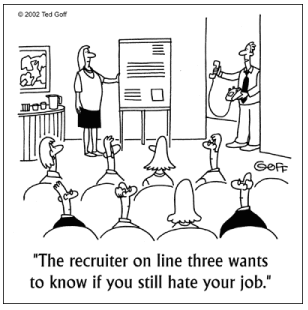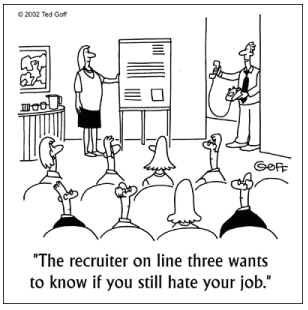 Recruiting rockstars is almost as critical to the future of a business as having an amazing product offering that meets a critical market need. The human capital of any company truly is one of its most valuable assets.
Recruiting rockstars is almost as critical to the future of a business as having an amazing product offering that meets a critical market need. The human capital of any company truly is one of its most valuable assets.
 Recruiting rockstars is almost as critical to the future of a business as having an amazing product offering that meets a critical market need. The human capital of any company truly is one of its most valuable assets. But unlike the technological advances in marketing, customer support and sales, recruitment at most companies hasn’t seen significant improvements that support analytics-driven, evidenced-based talent acquisition. According to a recent survey, 90% of startups rank talent acquisition as their biggest challenge. And finding the right candidates with specific skills is just as much of a problem for bigger companies too.
Recruiting rockstars is almost as critical to the future of a business as having an amazing product offering that meets a critical market need. The human capital of any company truly is one of its most valuable assets. But unlike the technological advances in marketing, customer support and sales, recruitment at most companies hasn’t seen significant improvements that support analytics-driven, evidenced-based talent acquisition. According to a recent survey, 90% of startups rank talent acquisition as their biggest challenge. And finding the right candidates with specific skills is just as much of a problem for bigger companies too.
In recent years though, the advent of big data in hiring is exponentially changing the game, empowering recruiters and their organizations like never before. With the right data, recruiting the best candidates is faster, more strategic, cost-effective and objective, which explains why an increasing number of companies are making it a priority.
A 2013 ABI Research report forecasts that big data spending will exceed $31 billion in 2013 and reach $114 billion in 2018. A separate industry study revealed that a whopping 91% of Fortune 1000 company executives said they had plans to or were already implementing big data initiatives.
People analytics, also referred to as “Moneyball” for human resources, gives recruiters insights into when to hire, how many people to hire and whom to hire, while keeping costs low, increasing the efficiency of the process and widening the pool of candidates. Big data also helps recruiters identify which sources and job boards generate the largest volume of the specific types of candidates they’re looking for, empowering them to control their talent pipelines and optimize hiring.
In the end, big data surfaces talent that regular hiring channels can’t, helping companies hire employees who are more qualified, easier to train, happier and more likely to stay with the company. But, without a scalable plan, navigating through big data to find hiring insights can be a daunting task, even with the right people and tools. Here are five important big data questions that recruiters should be asking:
1. What analytics and data currently define your hiring process?
Many recruiters employ a mix of analytics, personal opinions, feedback from peers and intuition to make hiring decisions. The most commonly used hiring analytics include college grades and majors, employment history, skills, keywords and answers to computerised tests. Although this helps narrow the applicant pool, it doesn’t help identify the ideal candidates among them. It’s also important to analyze how you rate your preferred job boards and the quality of applicants on them.
Another factor to assess is how “subjective” the hiring process is at your company. How much do your recruiters use “intuition” to move a candidate to the next round? As much as we’d all like to believe that hiring isn’t biased, there are many examples that prove the opposite is still true.
As a use case, look at Xerox, where the HR team cut attrition by 20% using evidenced-based criteria. To do this, Xerox stopped assessing call center job candidates based on experience, as data showed that it didn’t matter as much for that role. What mattered more was personality. During a six-month trial period, the company had all applicants for its 55,000 call center jobs take a screening test with questions designed to assess personality types. Maybe it’s time to change some of your hiring criteria based on big data learnings.
2. Are you gaining data insights from the job boards you use?
In today’s connected world where candidates are on multiple sites seeking out job openings and employee feedback on a company’s work culture and employee benefits, it’s important for recruiters to be everywhere that candidates are. Today, most job boards offer innovative tools and data insights to help identify the right candidates, promote job openings and facilitate more automated communication with applicants. Since 10 to 20% of hires come from job boards, make sure you choose yours wisely.
Does your job board analyze hundreds of data points being captured on candidates and employers and share actionable insights? Job boards can tell you the best day of the week and time of day to post a new job, job titles and keywords with the highest click-thru rates, hiring trends and patterns, and how your posts are performing compared to industry averages. Based on these insights, recruiters can tailor their listing frequency, timing and content for optimal talent acquisition.
3. Do you have tools and resources to make sense of big data?
While big data can help recruiters find the best possible talent, gathering and sifting through volumes of data to find insights can sometimes be like looking for a needle in a haystack. Not every HR team has the time, money or resources for deep data analysis. But, there are many third-party services and software, like Umbel and Evolv, that can help alleviate the workload. Plus, for a fee, websites like LinkedIn offer access to useful and actionable recruiting insights.
Documenting successes and convincing top leadership at your company to dedicate money and resources will help fill the gaps in critical talent areas and grow the business. In the long run, hiring the wrong candidates can end up costing the company a lot more than spending on recruitment. For example, in a 2013 Career Builder study, 27% of U.S. employers surveyed estimated that every bad hire could cost their company more than $50,000.
4. How are other companies using data to improve recruiting?
Gate Gourmet, an airline industry catering provider was struggling to lower an unusually high 50% attrition rate among 1000 employees at the O’Hare Airport in Chicago. Using data captured by internal systems, and external data like salaries, demographics and transportation options, the company confirmed its suspicion that the attrition rate was directly related to the distance and transportation options from employees’ homes to the airport, allowing them to change their hiring process and reduce attrition by 27%.
Royal Dutch Shell asked candidates to play two video games called “Dungeon Scrawl” and “Wasabi Waiter,” and analyzed the data to determine which of them would be better at creative thinking and idea generation based on persistence, creativity and the ability to learn from mistakes while playing the games.
Richmond Management LLC, a waste-disposal company in Flint, MI employs 200 garbage collectors. The company wants to eliminate job applicants more likely to hurt themselves and claim workers’ compensation so they use a customized online test to gauge candidates’ emotional stability, work ethic and attitude toward drugs and alcohol. The company reduced workers’ compensation claims by 68% since they started using this test to eliminate high-risk applicants.
5. Will big data replace recruiters and put them out of work?
Deloitte predicts that global spending on integrated talent management systems will grow by 17% to more than $6 billion in 2014. The 2014 HR Service Delivery and Technology Survey, a global survey of 1,048 companies, found that one in three respondents plan to spend more on HR technology in the coming year. But that doesn’t mean that recruiting will become automated by predictive analytics or algorithms. It’s only going to morph into more of a man-plus-machine role.
In addition to all the data insights, companies still need human recruiters for competitive intelligence and talent identification. At the most basic level, recruitment is still about people and requires high emotional intelligence and interpersonal skills that machines don’t have.
As more people are becoming concerned about their privacy every day, a lot of senior level executives are hiding their online job search from anyone outside their trusted circles. A recruiter can still reach these candidates by picking up the phone and calling them directly. In addition, more data often means more headaches and more margins for error. Recruiting even with big data will still depend on who’s actually using that data, and the human ability to connect with one another.










